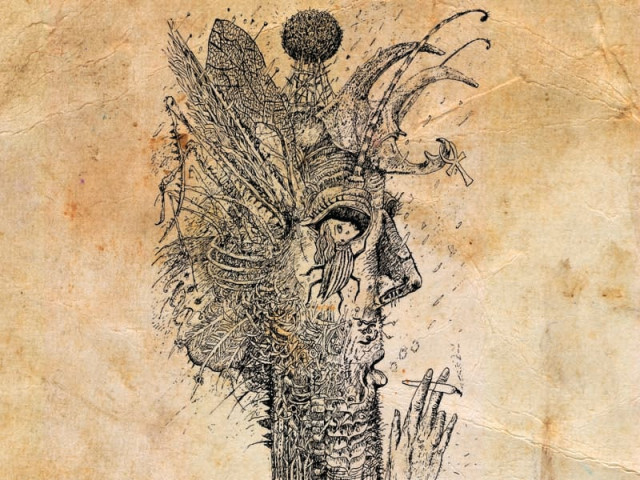The monstrous vermin within
100 years after Kafka’s ‘The Metamorphosis’ shook our lives

100 years after Kafka’s ‘The Metamorphosis’ shook our lives, we stand squirming, waiting to turn into butterflies and feel the wind in our face. DESIGN NABEEL KHAN
As most teenagers are, I was awkward and clumsy. I felt like a bug on the wall in class, hoping the teacher wouldn’t spot me and use a book to flatten my otherwise plump body against the concrete. I didn’t know it then, but Franz Kafka had left for me a novella to endear. One in which a young man wakes up one day to find his body replaced with that of an insect, a monstrous vermin.
I first got my hands on a copy of The Metamorphosis in my late teens, because someone I looked up to mentioned Kafka as one of his favourite writers. This was before the internet gave it all away, so the first time I read the opening sentence was the first time I picked up the book. Needless to say, for all my strife to be cool and appreciate high art, it took no effort to be sucked in by the leech. I read it from cover to cover the same night. I tried to read between the lines on subsequent sticky nights of Karachi when I felt like a pest. I had picked up the book to drop a fancy writer’s name. Instead, I found a multi-legged, beetle-like writhing body the mirror refused to show when I stared into it.
At some point in time, I don’t exactly remember when, the tiresome teenage years ended. I went to college and fell in love; I found an evening job to pay for dates. Kafka’s creature then morphed into a commentary of the human condition. Gregor Samsa’s inability to meet his employers when they came to his door seemed to be congruent to the mould I wanted to break, the tie I didn’t want to wear, the tube lights I didn’t want to sit under, the suits I didn’t want to take diction from, the paycheck I needed but didn’t want to be abused for. And yet like Gregor, we all bite the bullet. “I’ll be in the office soon after you… tell that to the boss and recommend me to him!”
Fresh minds take charge as Napa focuses on original plays
We all find our reasons to exist — for significant others, friends, family, art. We look inwards to understand what takes place outside. We fight our wars of comprehension, making sense of sour relationships and fickle belligerence. And this is why Kafka’s voice echoes so clearly in our minds. Those who loved Gregor couldn’t bear to see him. Perhaps because love is never unconditional. And as Gregor’s mother, we long to see the underbelly only when we’re certain it can’t be seen.
The Metamorphosis holds a mirror to our darkest fears. Widely regarded as an autobiographical account of Kafka’s own life, the story of Gregor is in real the story of all of us. And though with optimism, we somehow evade the absurdity of what we feel threatened by. Few of us try not to make sense of our condition. Kafka once told his friend Max Brod that he thought human beings were God’s nihilistic thoughts. When Brod asked if there was hope elsewhere in the universe, Kafka replied, “plenty of hope, for God, only not for us.”
And thus we stand, 100 years after Kafka’s seminal work shook our lives, still squirming, waiting to turn into butterflies and feel the wind in our face.
Published in The Express Tribune, October 26th, 2015.
Like Life & Style on Facebook, follow @ETLifeandStyle on Twitter for the latest in fashion, gossip and entertainment.



















COMMENTS
Comments are moderated and generally will be posted if they are on-topic and not abusive.
For more information, please see our Comments FAQ